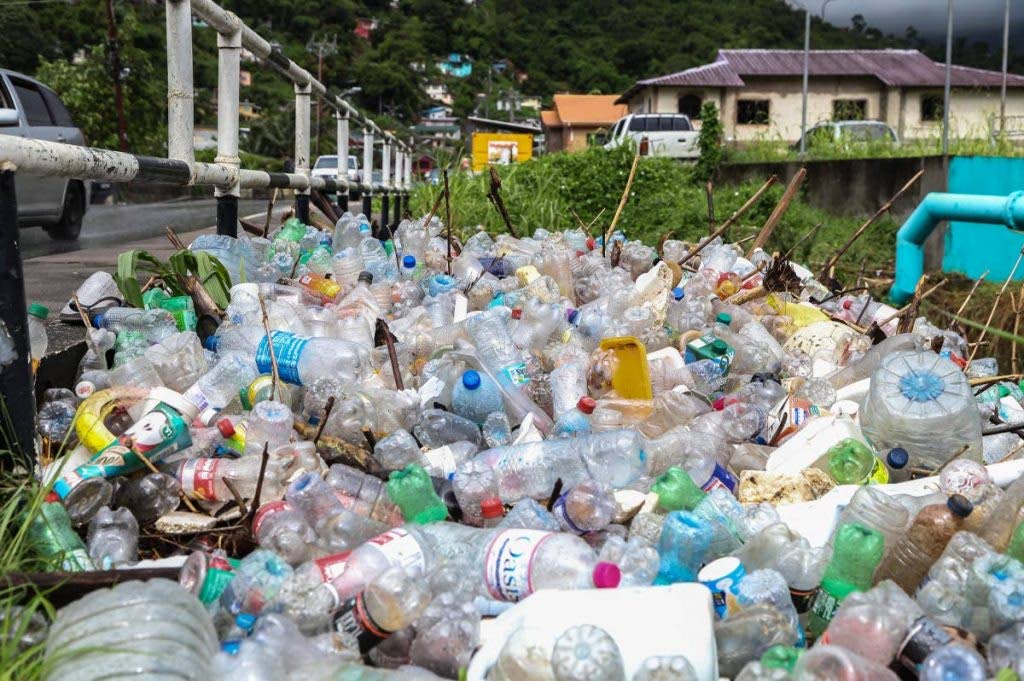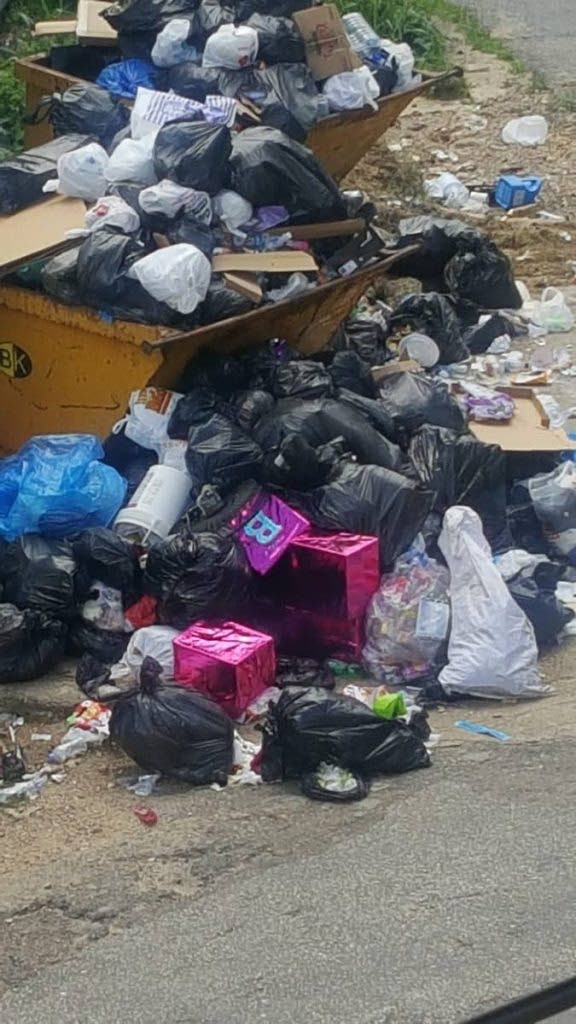Supermarket seas

AKILAH STEWART
THE garbage we see after a flood is a small fraction of what makes it into our waterways daily.
According to the Institute of Marine Affairs, we have 15 times more sea space than land space.
We pollute this space every day. We are surrounded by water that continues to quietly take all that we unleash on it – a “supermarket” of waste in the sea.
Approximately four per cent of our waste is illegally dumped and never make it to landfills. This number is just a fraction of the 1.4 million tonnes of municipal solid waste that TT is estimated to be generating per year by 2020, according to the Ministry of Planning and Development's website.
If 40 per cent of our waste doesn’t make it to our landfills, where does it go? One place is our waterways and eventually, our seas.
How is it possible to generate so much waste?
One trip to a fast food restaurant can yield seven pieces of plastic per person – a Styrofoam or plastic container, plastic fork or spoon, plastic straw, plastic bag and a carbonated beverage counts as three (the cover, the circular seal and the bottle itself). Many people buy water by the 24-bottle case. If a refillable bottle is used instead of drinking bottled water, it will amount to 72 fewer pieces of plastic in a week, or 35,000 fewer pieces of plastic in a year – from one person adjusting one behaviour.
Plastics affect us even if we never go to the sea or beach. Just last month, I was admiring the majesty of a samaan tree on the St Augustine campus of the University of the West Indies. I was horrified to observe plastic woven into a cornbird’s nest. Plastic is invading everywhere, not just our rivers and seas.
A 2019 study by the United States Geological Survey (USGS) also found microplastics in rainwater in Colorado. These tiny particles can become aerosolised, end up in the atmosphere and cause microplastic “rain” thousands of miles away.
Microplastics are tiny particles of plastic that scientists estimate can persist in the environment for hundreds of years. Microplastics have even been found in the Mariana Trench, which is a geographical depression that is deeper underwater than Mt Everest is high in the sky!
As a solution many people recycle; the national recycling drive is increasing every day. However, it is important to note that recycling can create a false sense of action in the context of the problem.
In TT, based on figures from the Solid Waste Management Company (SWMCOL), less than one per cent of our waste is recycled. If you don’t believe that, try assessing all the waste you create at home for a week and see how much it amounts to.
Don’t forget the “invisible” waste, the waste created when WASA and Desalcott import plastic barrels of chlorine to treat your drinking water; and the plastic and cardboard packaging waste for all foods, cosmetics, electronics and other items shipped into the country.
Yes, about 40 per cent of packaging waste is estimated to be never seen by the consumer! If you pass by a supermarket disposal area you may have an idea of that waste stream.

On a national level, in 2019, TT also showed an increased awareness of the problem of plastic pollution. SWMCOL’s efforts to expand recycling are commendable. Initiatives such as the Emperor Valley Zoo using recycled plastics to pave its road and the government’s proposed plans to ban Styrofoam in 2019 attest to this.
However, TT has a short memory. The Beverage Container Bill was drafted since around 1999; here we are, 20 years later, victims of our own inaction. We can blame invisible dumpers and litterbugs, but the problem is one that should partly be addressed at a governmental level, because so much of everything we use is packaged, and waste management is failing miserably.
TT is not alone; plastic pollution is a global problem. Estimates indicate that every square mile of the ocean has 46,000 pieces of plastic – a lot of it microplastics.
There are many countries across the region that have whipped out the plastic plunge on a national scale.
The Government’s budget declaration about removing plastic bottles from government offices is severely myopic in the context of the problem.
Our distant neighbour Costa Rica, on the other hand, has taken important steps in addressing the plastic issue. As a result, Costa Rica is becoming a game-changer in environmental management through a policy geared towards becoming the first country to eradicate single use plastics by 2021!
Why is TT idling behind other nations? We have the ability and the expertise to be environmental leaders.
Sidebar
What you can do
Like most problems, many creative solutions do exist for single-use plastics.
Often these solutions are ones which other countries that have banned plastics have had to revert to already.
This involves appreciating that in the slogan “Reduce, Reuse and Recycle,” Reduce is first for a reason, and reuse is also second for a reason.
There are many ways to address the waste problem affecting our seas. These include buying local and promoting greater environmental advocacy. Many organisations have stimulating ideas and solutions.
You can start or join an environmental group, follow an environmental group on social media, adopt a riverway or promote protection and conservation of wetlands and coastal spaces.
This is the second story in a series of three by Akilah Stewart. She is a PhD candidate in environmental biology in the Department of Life Sciences, Faculty of Science and Technology, UWI, St Augustine. She has worked in the area of water resources management throughout the Caribbean over the past ten years.


Comments
"Supermarket seas"